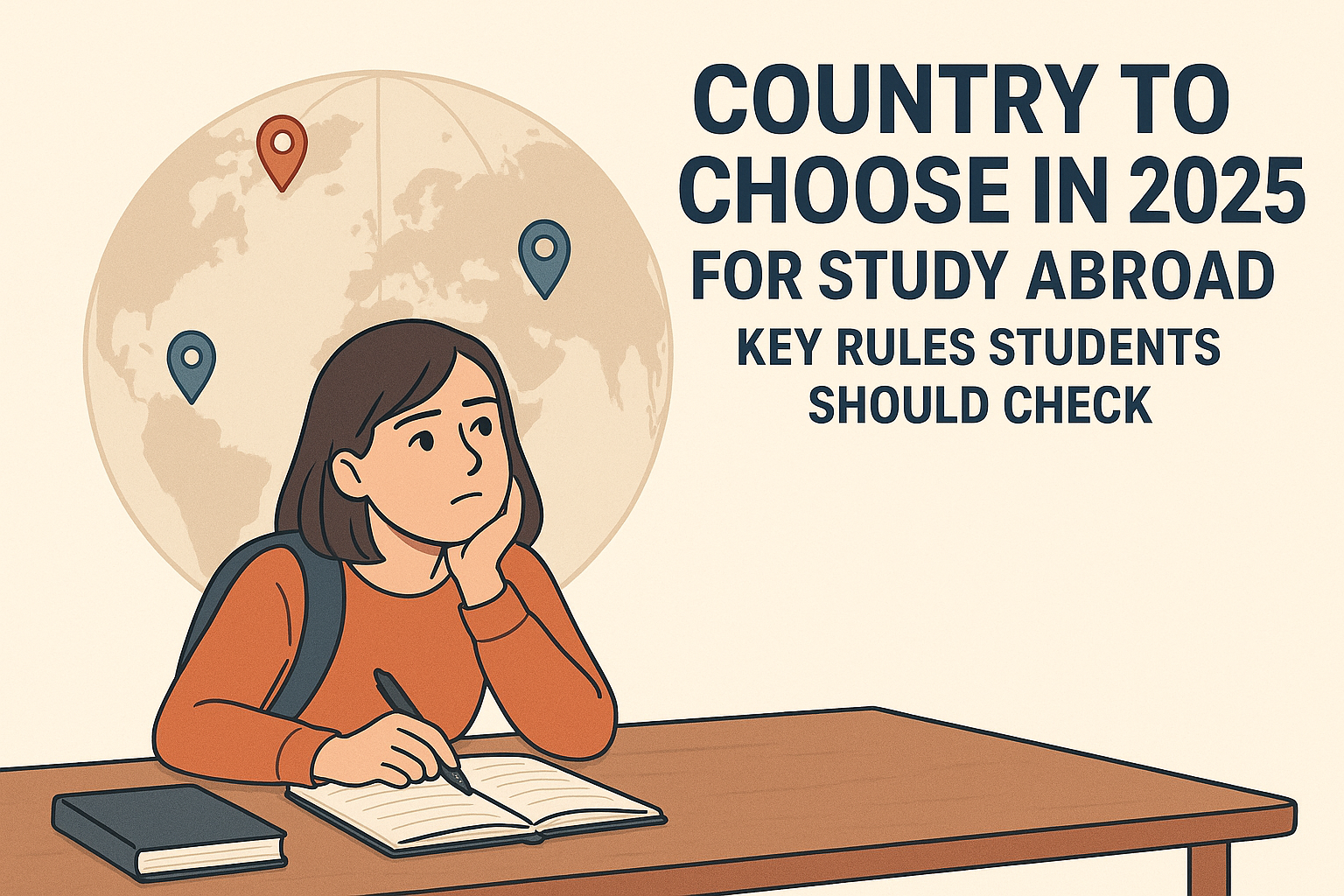If you are planning to study abroad in 2025-26, this article is for you to know about recent policy changes. Many popular countries have changed their visa rules, financial requirements and post – study work options. This is quick guide to help you decide smartly.
- United States
The US now requires in-person interviews for most student visas (F, M, J) from Sept 2025. A new $250 visa integrity fee and $24 I-94 fee are also being introduced. Visa screening includes mandatory public social media checks, and there’s talk of limiting F-1 visas to 4 years.
Positives:
- World’s top universities (MIT, Stanford, etc.)
- Strong STEM job market with OPT & H-1B pathway
- Cultural diversity & high research funding
Negatives:
- High cost of tuition and living
- Visa process is more complex & intrusive
- Fewer long-term settlement options
- Canada
Canada has capped student visas, raised funds requirement to CA$20,635, and is rejecting up to 80% of Indian applications in 2025. Approval chances are lower unless you’re applying through top-tier institutions.
Positives:
- Easier PR pathways after study
- Work during and after study is allowed
- Friendly, immigrant-focused society
Negatives:
- Visa approval now highly competitive
- High housing costs in cities like Toronto & Vancouver
- Stricter checks on study plans and intent
- United Kingdom
The UK still offers a 2-year post-study work visa under the Graduate Route (3 years for PhD). Some tightening in dependent visas and eligibility criteria, but remains a solid choice.
Positives:
- 2nd most popular destination globally
- Shorter master’s programs (1 year)
- Strong job market in finance, law, and creative fields
Negatives:
- High tuition + living costs
- Uncertain visa renewals & post-study job transition
- Dependent restrictions reduce family mobility
- Germany
Germany is rising fast due to low or no tuition fees, increasing English-taught programs, and job seeker visas after graduation. Visa process is strict but transparent.
Positives:
- Affordable education & living costs
- Work options during & after study
- High demand for engineers & IT grads
Negatives:
- Bureaucratic visa process
- German language needed for some jobs
- Limited scholarships for non-EU students
- Australia
Australia continues to offer strong post-study work rights and has eased some rules for international students. Regional areas offer longer work permits.
Positives:
- Generous post-study work options
- Strong part-time work market
- Student-friendly immigration policies
Negatives:
- Cost of living high in Sydney/Melbourne
- Some courses don’t lead to PR eligibility
- Strict visa conditions for some nationalities
- New Zealand
New Zealand is regaining popularity with flexible visa policies, focus on skilled migration, and growing international student intake post-COVID.
Positives:
- Safe, peaceful environment
- Flexible work rights during studies
- Focus on skills-based immigration
Negatives:
- Fewer global university rankings
- Limited PR options unless in high-demand fields
- Smaller job market compared to Australia
- Final Advice
Studying abroad in 2025 offers great opportunities—but visa rules, job options, and costs vary sharply by country. While the U.S. offers prestige, it comes with tighter screening; Canada gives PR potential but has stricter approvals; UK, Germany, Australia, and New Zealand balance education with post-study benefits.
Choose the country that best matches your goals, budget, and risk comfort, not just based on rankings. A smart choice today will shape your career tomorrow.
